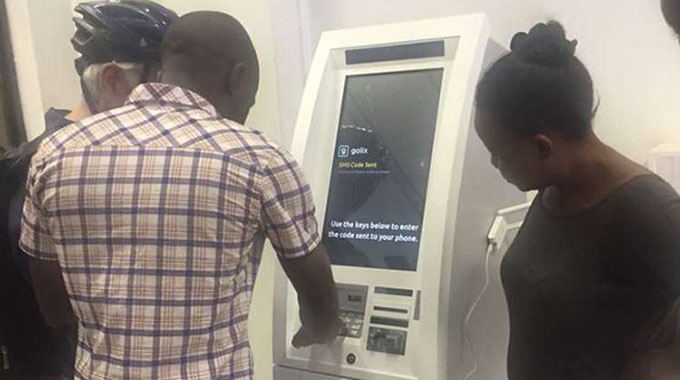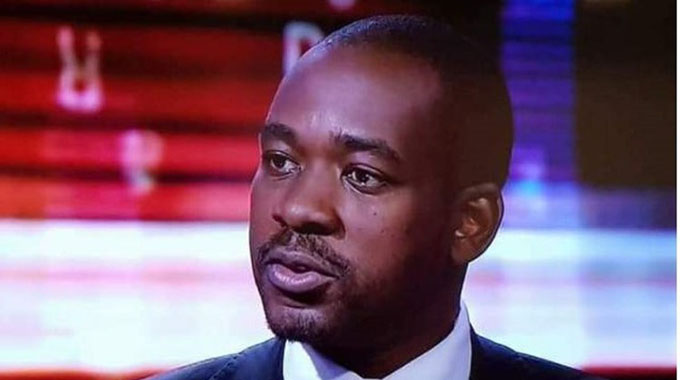RBZ ban hits Golix

Jeffrey Gogo Herald Business Correspondent
Harare digital money exchange Golix.com has suspended plans to raise $35,8 million through an Initial Coin Offering (ICO) until further notice, after the Reserve Bank of Zimbabwe (RBZ) effectively shut the door on the trade of cryptocurrencies in the country.
The ICO, Zimbabwe’s first, was due to open yesterday (Monday, May 14) and close on July 6, 2018.
Golix had hoped to open up multiple cryptocurrency exchanges across Africa, the new battleground for technological innovation, using proceeds from the issue.
But the RBZ on May 11 poured cold water on the plans, after it ordered banks to stop all dealings with digital currency trading platforms Golix and Styx24, and with any other individual cryptocurrency investor, within 60 days from now.
In a development described by analysts as rash, the central bank said all crypto-linked bank accounts must be closed. There are more than 50 000 bank accounts of Zimbabweans dealing in cryptocurrencies on the Golix platform alone.
Golix banks with CBZ Bank and Steward Bank, while Styx24 has struggled to open a corporate bank account. On its part, the central bank argues that it is acting to “safeguard the integrity, safety and soundness of the country’s financial system . . . ” it said in a circular to banks over the weekend.
Golix spokesperson Nhlalwenhle Ngwenya, yesterday told The Herald Business that the ICO will go ahead, but only “after we verify a few things.”
He said the exchange had not been informed of the crypto ban, neither by the RBZ nor by their bankers, for the issue to be stopped.
It is clear though that without support from commercial banks, the ICO may find it difficult to attract new investors. To participate in the offer, those that do not already hold cryptocurrencies, will have to make cash transfers to Golix’s bank account, buy Bitcoin or Ethereum, before getting the ICO cryptocurrency called Golix token (GLX token).
In the Initial Coin Offering, investors will get one GLX token for every $0,05612 they pay in Bitcoin, Ethereum or Stellar, Golix said this week.
More than 1 274 billion GLX tokens are on offer, but only half will be sold to the public.
The rest are to be shared between the owners of Golix (15 percent), their staff (25 percent), and to cover costs of marketing the intended projects (10 percent).
This will happen over a period of four years, after the ICO closes, if Golix is to go ahead with the issue.
Golix, headed by 31-year-old software engineer Tawanda Kembo, says it plans to open digital currency exchanges in several African countries in the next four years, to help make cash transfers a lot easier, cheaper and faster, for Africans at home and abroad. And, also, to spread the adoption of virtual currencies.
“. . . by setting up exchanges in multiple countries?, the new token . . . will be issued to provide users on all these exchanges an additional means of value transfer between fiat and cryptocurrencies,” the company says in its Whitepaper.
“It will give holders an opportunity to invest in cryptocurrency projects in Africa.”
Uncertainty
Our sister paper The Business Weekly exclusively revealed Golix’s Initial Coin Offering plans in January, but amid less cheer from capital markets regulator SecZim. Then, Tafadzwa Chinamo, chief executive of the Securities Exchange Commission of Zimbabwe (SecZim), warned investors against dealing with unregulated exchanges and with the absence of cryptocurrency law here, clearly it’s a cautious stance.
In an ICO, technology start – up companies basically issue their own cryptocurrencies – much akin to creating money from thin air – and expect investors to buy.
ICOs imitate the Initial Public Offering (IPO) in common stocks, but without the rigour of regulatory oversight, which in a sense makes them attractive to start-ups keen on getting around bureaucratic red-tape.
The issuing company sets the cost of the new currency, which investors hold in their wallets online, hoping they will appreciate in value as the company flourishes. So, without anyone pinning down the tech firms to comply with financial disclosure requirements, or to issue a prospectus, as would a company in an IPO, cryptocurrency investors have to make do with a whitepaper.
This is essentially a strategy plan of no more than a few pages in most cases – 11 in Golix’s instance – outlining the who, the what, the why and the how, of both the token on offer and the company, people behind it. Once investors are satisfied with the vision – at least they are expected to, it would be ideal – they can buy into the token. But many others buy for speculative purposes, even without reviewing the whitepaper.
Worldwide, more than $7,25 billion has been raised through ICOs so far this year, according to coinschedule.com , a website that tracks such issues.
And tens of millions more scammed.
Increased value
Golix, which has traded over $20 million Bitcoin’s worth since launch in September 2015, did not specify where exactly it intends to set up shop in Africa. But it hopes to have started operations in a new country in the last three months of 2018, and in four others during the second quarter of 2019.
Mr Ngwenya said Golix will be incorporated in Mauritius this month, and a new office opened in South Africa in June.
There’s no surety that investors will make money from participating in the ICO.
But the idea is that the tokens they obtain through the ICO will increase in value as Golix, which reported revenue increase of more than 6,200 percent to $158,000 last year, implements it’s growth strategy. The exchange has even promised to boost that value by repurchasing up 50 percent of the issued coins-buybacks typically create a sense of artificial scarcity, causing asset prices to rise.
Golix is convinced it’s token will make money.
“Investing in projects that promote the token creates awareness, which will subsequently bring in more people, fuelling demand of the token,” the company says in its whitepaper.











Comments